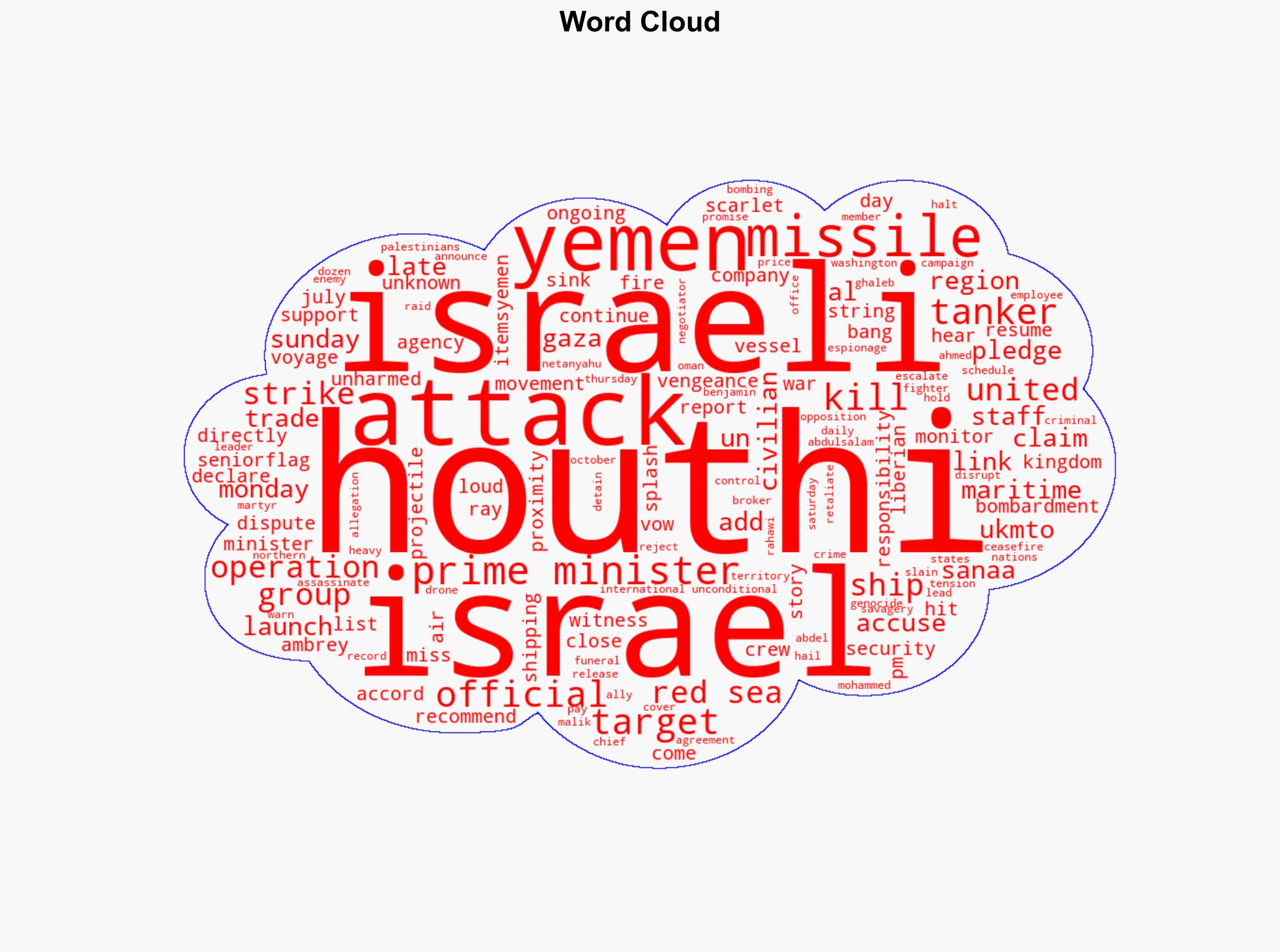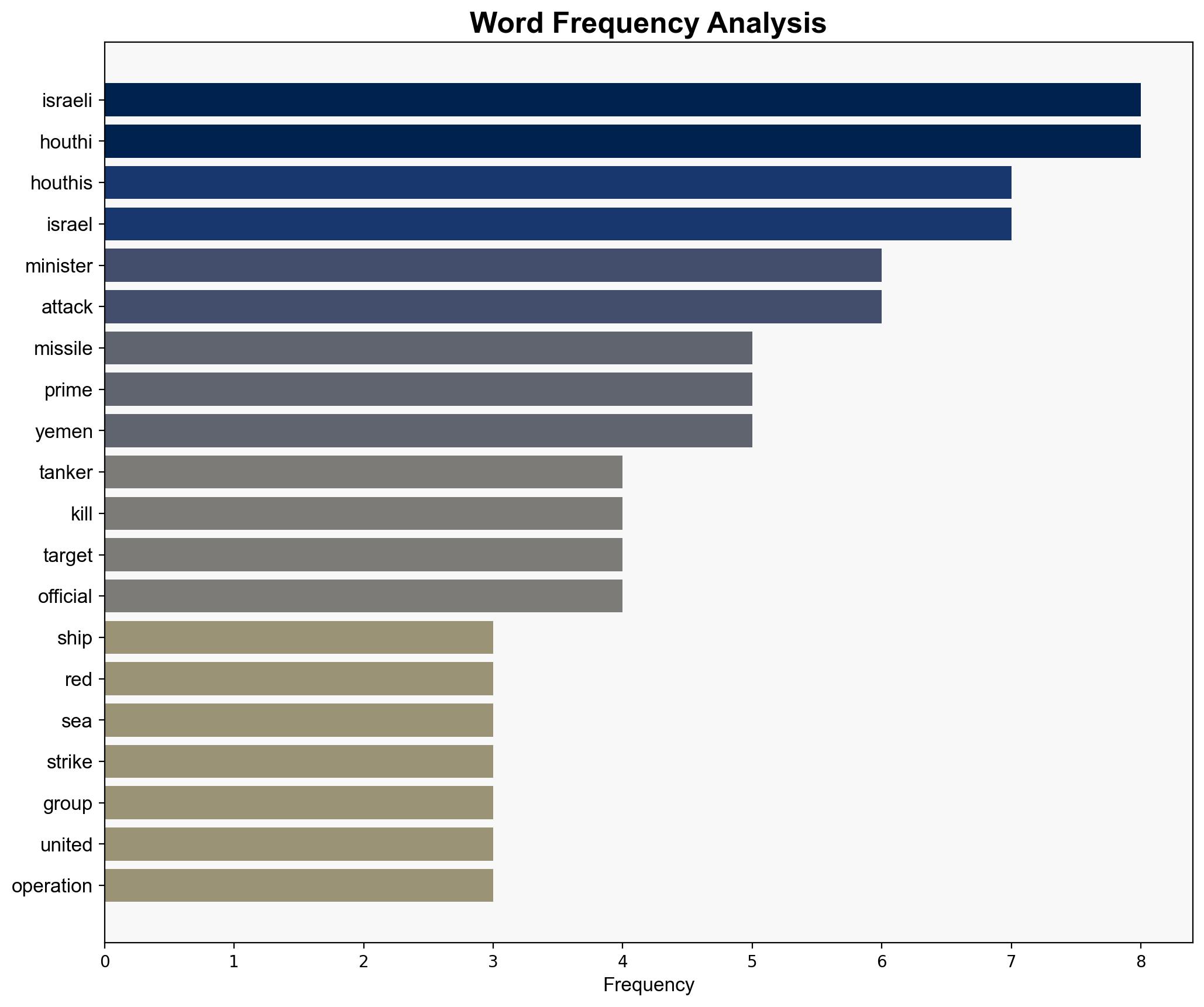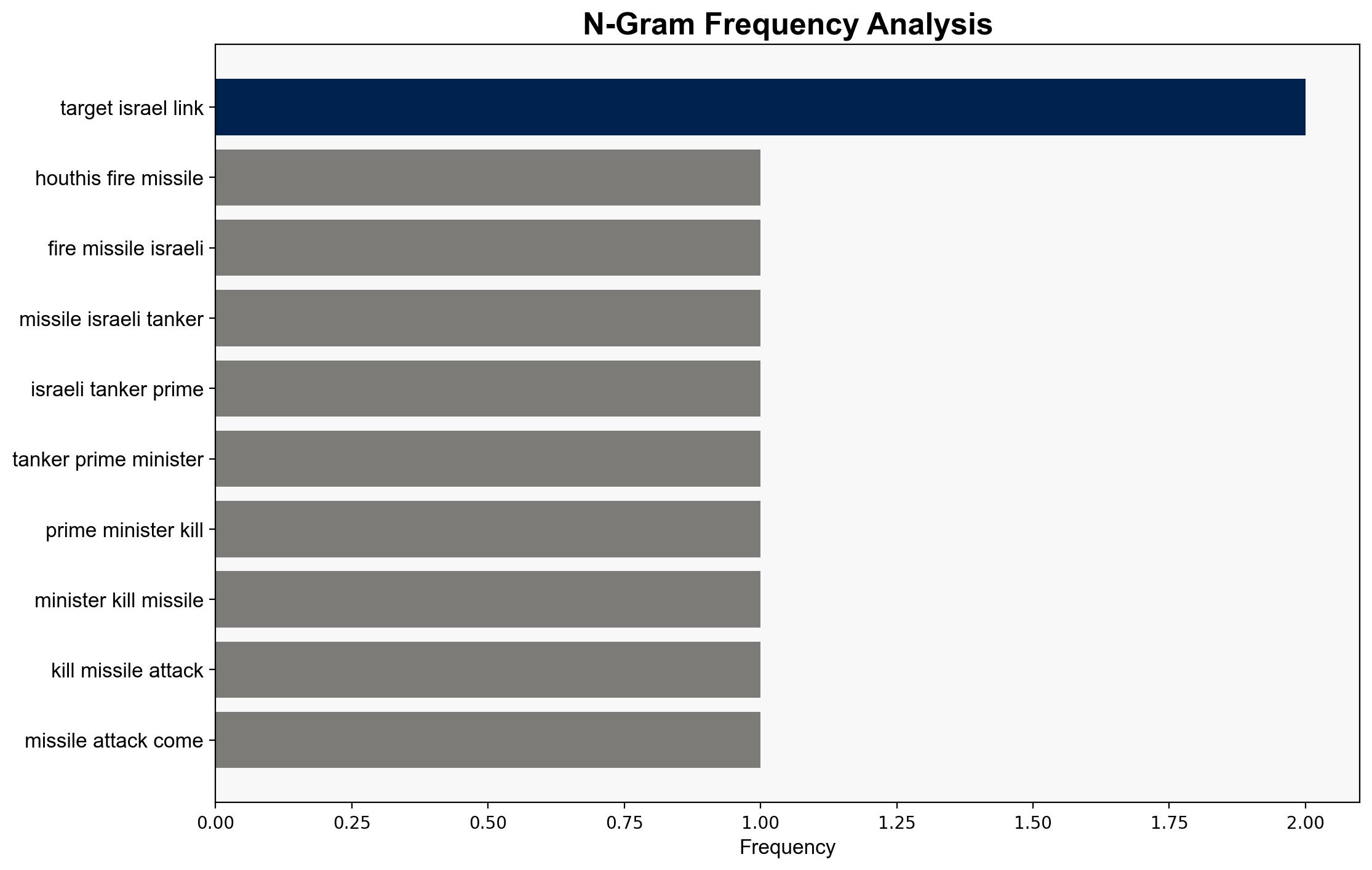Houthis fire missile at Israeli-owned tanker after prime minister killed – Al Jazeera English
Published on: 2025-09-01
Intelligence Report: Houthis fire missile at Israeli-owned tanker after prime minister killed – Al Jazeera English
1. BLUF (Bottom Line Up Front)
The most supported hypothesis is that the Houthi missile attack on the Israeli-owned tanker is a direct retaliation for the killing of their prime minister, Ahmed Ghaleb al-Rahawi, by an Israeli airstrike. This conclusion is supported by the timing of the attack and the Houthis’ public statements. Confidence level: Moderate. Recommended action: Increase maritime security measures in the Red Sea and engage in diplomatic efforts to de-escalate tensions.
2. Competing Hypotheses
1. **Retaliation Hypothesis**: The missile attack on the Israeli-owned tanker is a direct retaliation by the Houthis for the assassination of their prime minister by an Israeli airstrike. This hypothesis is supported by the timing of the attack and the Houthis’ explicit statements of vengeance.
2. **Strategic Disruption Hypothesis**: The attack is part of a broader Houthi strategy to disrupt Israeli-linked maritime activities in the Red Sea, irrespective of the assassination. This hypothesis considers the ongoing pattern of Houthi attacks on shipping and their declared support for Palestinians.
Using ACH 2.0, the Retaliation Hypothesis is better supported due to the immediate temporal link between the assassination and the attack, as well as the Houthis’ explicit statements of intent.
3. Key Assumptions and Red Flags
– **Assumptions**: The Retaliation Hypothesis assumes a direct causal link between the assassination and the missile attack. The Strategic Disruption Hypothesis assumes a long-term Houthi strategy against Israeli-linked shipping.
– **Red Flags**: Lack of independent verification of the missile attack’s intended target and the Houthis’ capabilities. Potential bias in attributing the attack solely to the assassination without considering broader strategic motives.
4. Implications and Strategic Risks
– **Escalation Risk**: Potential for further retaliatory actions by Israel, increasing regional tensions.
– **Economic Impact**: Disruption of shipping routes in the Red Sea could affect global trade.
– **Geopolitical Dynamics**: The attack may strain relations between regional powers and impact ongoing ceasefire negotiations.
5. Recommendations and Outlook
- Enhance maritime security protocols in the Red Sea to prevent further attacks.
- Engage in diplomatic channels to mediate and de-escalate tensions between involved parties.
- Best-case scenario: Successful diplomatic intervention leads to de-escalation.
- Worst-case scenario: Continued attacks lead to broader regional conflict.
- Most likely scenario: Periodic skirmishes with intermittent diplomatic efforts.
6. Key Individuals and Entities
– Ahmed Ghaleb al-Rahawi
– Abdel Malik al-Houthi
– Benjamin Netanyahu
– Mohammed Abdulsalam
7. Thematic Tags
national security threats, cybersecurity, counter-terrorism, regional focus





